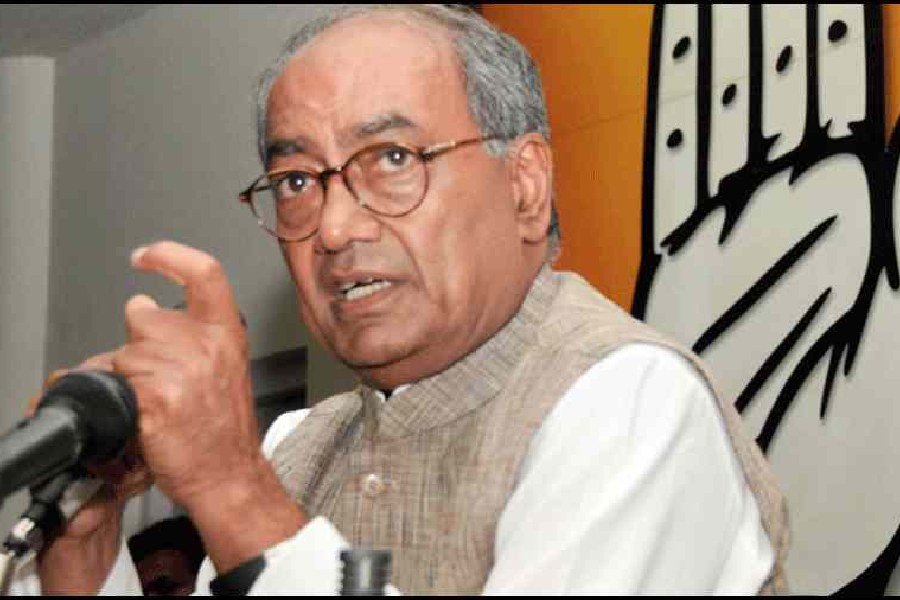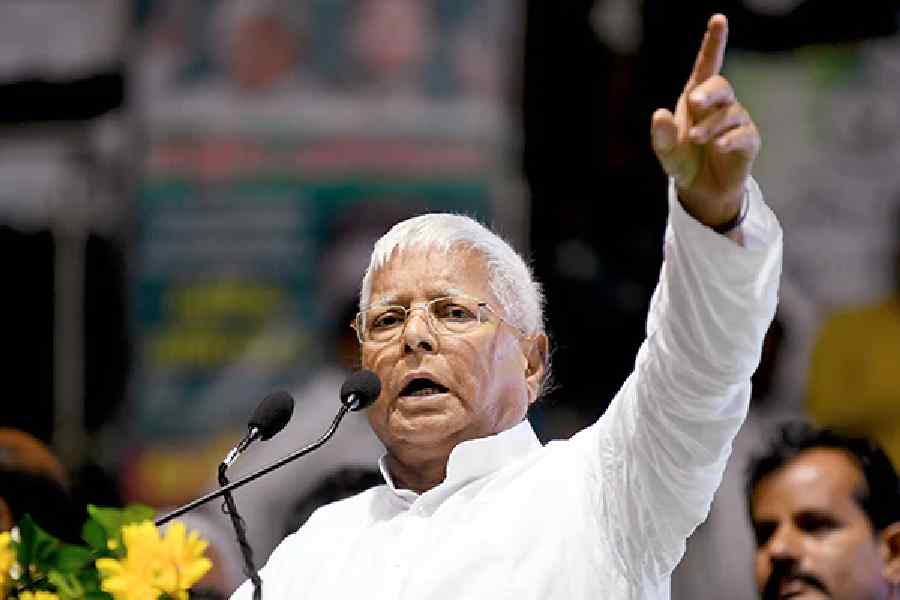The Congress on Tuesday voiced suspicion about the results in Madhya Pradesh, and several Opposition leaders demanded that the parliamentary elections be held on ballot papers instead of electronic voting machines.
Congress chief of Madhya Pradesh Kamal Nath said: “The results are surprising. You all know the ground reality. Some candidates met me just now and said they got only 50 votes in their own villages.”
Party veteran Digvijaya Singh went a step ahead, saying he had no faith in EVMs but that the Election Commission was not giving time to the Opposition parties to discuss the issue.
Digvijaya tweeted the detailed results to show that postal ballots clearly indicated a mandate in favour of the Congress.
Postal ballots, cast by government employees and this time also by voters above 80, usually reflect a trend in the BJP’s favour. But the Congress was decisively ahead in this election, with 1,93,452 votes in their favour out of the total 3,40,354 ballots. The BJP got 1,22,809, with the rest going to other parties. The Congress led in 199 of the 230 constituencies in postal ballots.
In the final tally, it got 66 seats.
Digvijaya said: “It is a matter of concern. When the people are the same, how did the voting pattern change so drastically? Postal ballots bear evidence of a Congress edge in 199 seats. We lost most of these seats in EVM counting. We can say the people are defeated when the system wins. We are proud Congress workers who worked very hard on the ground, demonstrating our faith in democracy.”
For example, the Congress got 1,144 postal ballots in Alirajpur constituency while the BJP got 579. In the final result, the Congress candidate got 80,011 votes and the BJP nominee 83,764.
In Indore district, the BJP has massive support and the postal ballots also reflected that. The party won most of the seats there.
But in many other districts like Gwalior, Satna, Morena, Khargone and Neemuch, the Congress lost badly despite clear dominance in the postal ballot papers.
While this is no evidence of EVM tampering, it has drawn attention because of the disconnect between the final results and the feedback from the ground and opinion polls.
Social activist and psephologist Yogendra Yadav tweeted: “A question for researchers: isn’t this very unusual? I have done no research on the relationship between postal ballots and EVM votes, but I thought BJP tended to do better in postal ballots. So, this seems very unusual? Or not? Genuine question. Only informed responses, please.”
Asked about exit polls predicting correctly a landslide victory for the BJP, Kamal Nath said: “Those who knew the results in advance designed the exit polls accordingly.”
Digvijaya tweeted: “Any machine with a chip can be hacked. I have opposed voting by EVM since 2003. Can we allow our Indian democracy to be controlled by professional hackers! This is the fundamental question which all political parties have to address. Honourable ECI and Supreme Court, would you please defend our Indian democracy?”
This sentiment resonated across Opposition parties as former Maharashtra chief minister Uddhav Thackeray on Tuesday dared the Modi government to hold parliamentary elections on ballot papers. A day after Shiv Sena (UBT) spokesperson Sanjay Raut described the Assembly poll results as an “EVM mandate”, Thackeray said doubts in the minds of the people must be removed to protect democracy.
Samajwadi Party president Akhilesh Yadav wondered why India can’t discard EVMs when developed countries like the US and Japan hold elections on ballot papers and wait for results for days. “We can wait for a month,” he said.
BSP chief Mayawati also expressed suspicion, asserting that it was difficult to digest the results because they did not reflect the prevailing political atmosphere.
Mayawati said: “It is natural for everybody to get shocked, suspicious and worried. The political ambience was entirely different and there was a fierce contest. But the results turned out to be one-sided. This is mysterious. This needs to be seriously analysed and resolved.”
Posting an old article on the data mismatch in the 2019 Lok Sabha elections, Supreme Court lawyer Prashant Bhushan said: “In the light of a huge lead by the Congress over the BJP in postal ballots in Madhya Pradesh, this analysis is important. The article emphatically exposed the difference between the votes polled (as per the voter turnout register) and the votes counted by EVMs in 373 constituencies. There were differences in the range of 5,000 to 20,000 votes, but the Election Commission refused to answer specific queries by the news portal.”
Bhushan referred to another article in The Wire which said: “The entire election machinery, from the manufacturing of EVMs to the software loaded onto them, to the committee appointed to evaluate the software, the so-called third-party auditing this software and much more, is controlled by the central government and the Election Commission has very little say. The same holds true for the pre-election security measures put in place for the machines, such as first-level checking before they are sealed in a warehouse with 24×7 security. Or the random allocation of the machines to constituencies. No officer of the Election Commission is present during any of these exercises.”












